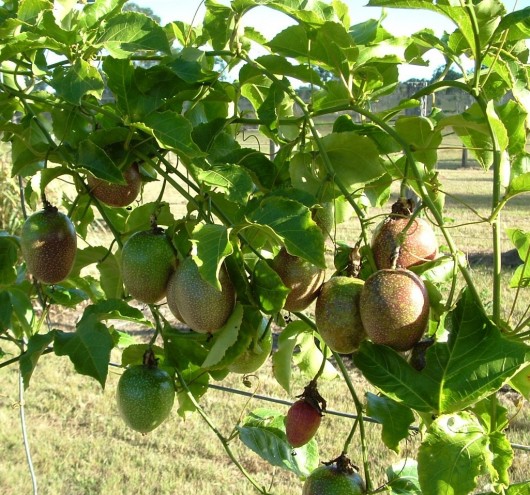Health Benefits of Passion Fruit Juice
Passion fruit juice is a bright, refreshing way to get fiber as well as vitamins and minerals and other valuable nutrients. You can purchase prepared passion fruit juice at your local supermarket, or make your own from the raw fruit. Either way, you will have a healthy treat to enjoy with breakfast, or any time you are in the mood for a sweet pick-me-up. Passion fruit juice makes a welcome change from the same old orange juice you have been drinking for years, and it has some additional health benefits that most citrus juices don’t possess.
Vitamins and Minerals Are The Source Of Health Benefits of Passion Fruit Juice
Passion fruit juice is chock-full of vitamins and minerals. The vitamin that passion fruit juice is most known for is vitamin A. One 3-ounce serving of passion fruit juice contains almost 20 percent of your daily recommended allowance of vitamin A. Vitamin A is a fat-soluble vitamin that is instrumental in helping maintain keen eyesight, as well as healthy skin, tissues, cones and teeth.
Passion fruit juice is also a good source of vitamin C. While it doesn’t contain quite as much vitamin C as orange juice, one small 3-ounce serving contains 50 percent of the daily recommended allowance of the vitamin. Vitamin C helps maintain a healthy immune system, as well as helps to heal wounds, repair tissues, blood vessels, and cells, and repair teeth and cartilage.
This juice is a good source of potassium, particularly if you squeeze your own juice from raw passion fruit. Potassium is a key mineral for heart health, nerve health, maintaining healthy kidneys, as well as helps the muscles to contract properly. Potassium is also an electrolyte, meaning that it helps to conduct electricity in the body.
Aside from these nutrients, passion fruit juice is a source of iron, magnesium, phosphorous and copper. Iron is essential for maintaining healthy red blood cells, which carry oxygen to the heart and around the body. Magnesium is an important mineral for the creation and use of proteins and energy. Phosphorous helps to form bones and teeth. Finally, copper plays a role in red blood cell formation, as well as helps to maintain the nerves, blood vessels, bones, and immune system.
Antioxidants
The vitamin A and C in passion fruit juice act as antioxidants. This juice also contains other, additional, antioxidants as well. Together, this collection of antioxidants helps to clear the body of free radicals that can cause damage to skin and tissue cells as well as cause cancer.
Fiber
Passion fruit juice is a good source of fiber, particularly if it is prepared from fresh fruit rather than bought processed from a store. Fiber helps add bulk to the stool, which helps you to pass waste more easily. Fiber also helps to remove cholesterol from your system as well as helps to prevent certain types of cancer, such as colon cancer. Leave the pulp in the juice to take advantage of the high amounts of fiber in the pulp.
Alkaloids
This juice is a good source of alkaloids, such as harman. This alkaloid has anti-spasmotic properties, as well as helps to calm the nerves and lower blood pressure. These alkaloids are the main reason why passion fruit juice is thought to be healthy for those with high blood pressure, and clinical studies back the usefulness of this juice for lowering blood pressure. The sedative properties of the alkaloids are also believed to help you fall asleep naturally, reducing the effects of anxiety and insomnia.
Phenolic Acids and Flavonoids
The phenolic acids ad flavonoids in passion fruit juice may help protect the heart, as well as kill germs.
Anti-Inflammatory Substances
Passion fruit juice has anti-inflammatory properties, which may help reduce the symptoms of asthma. In addition, substances in passion fruit juice may block histamine, which is the main cause of allergies. Passion fruit juice may help relieve the symptoms of allergies by preventing nasal swelling as well.
These were the main health benefits of passion fruit juice. If you want them (yes you do! :) ) include passion fruit juice in your diet once in a while. Preferably homemade.



